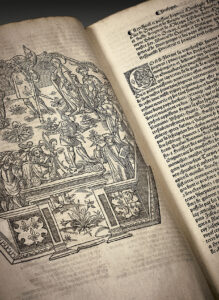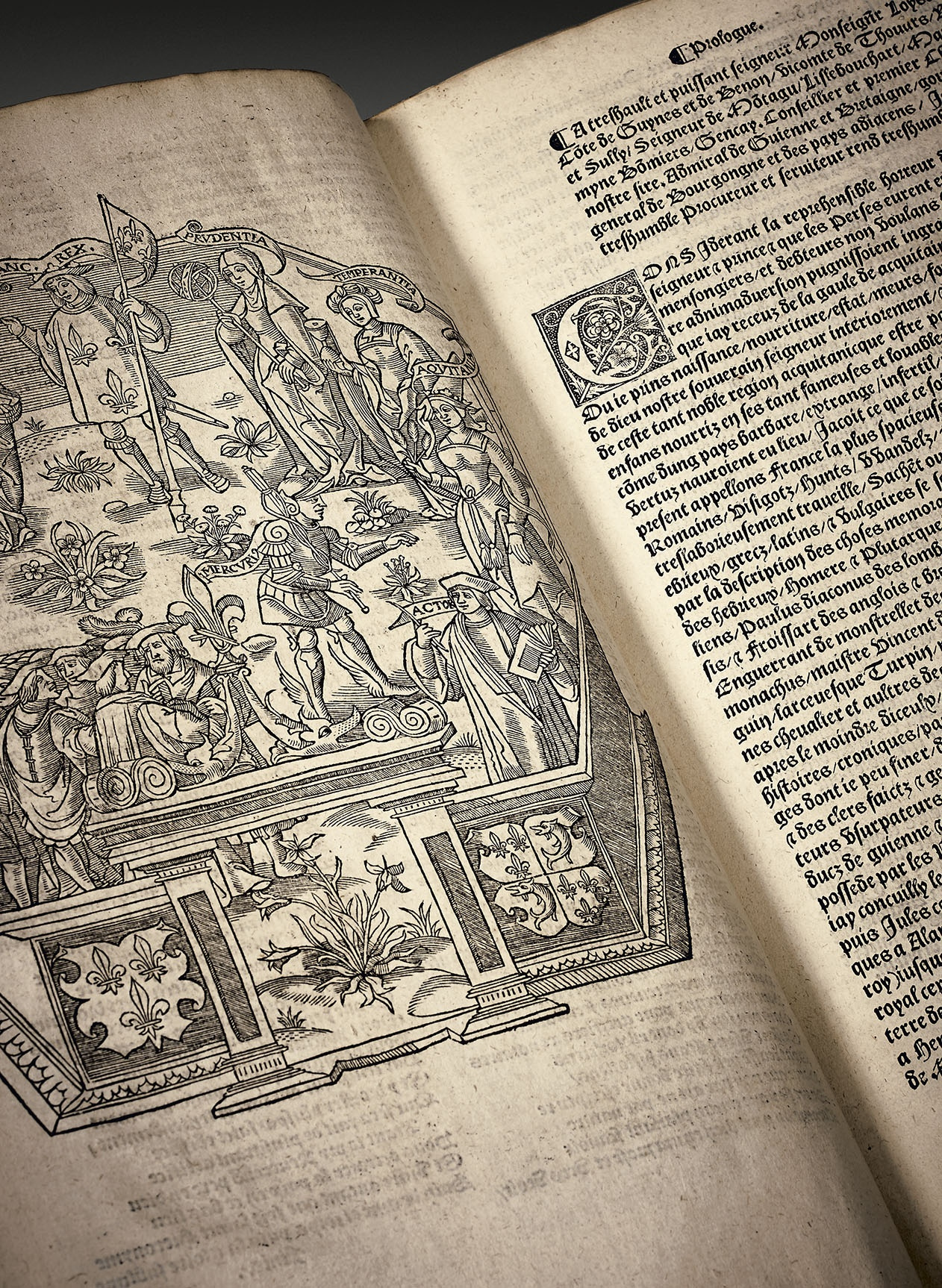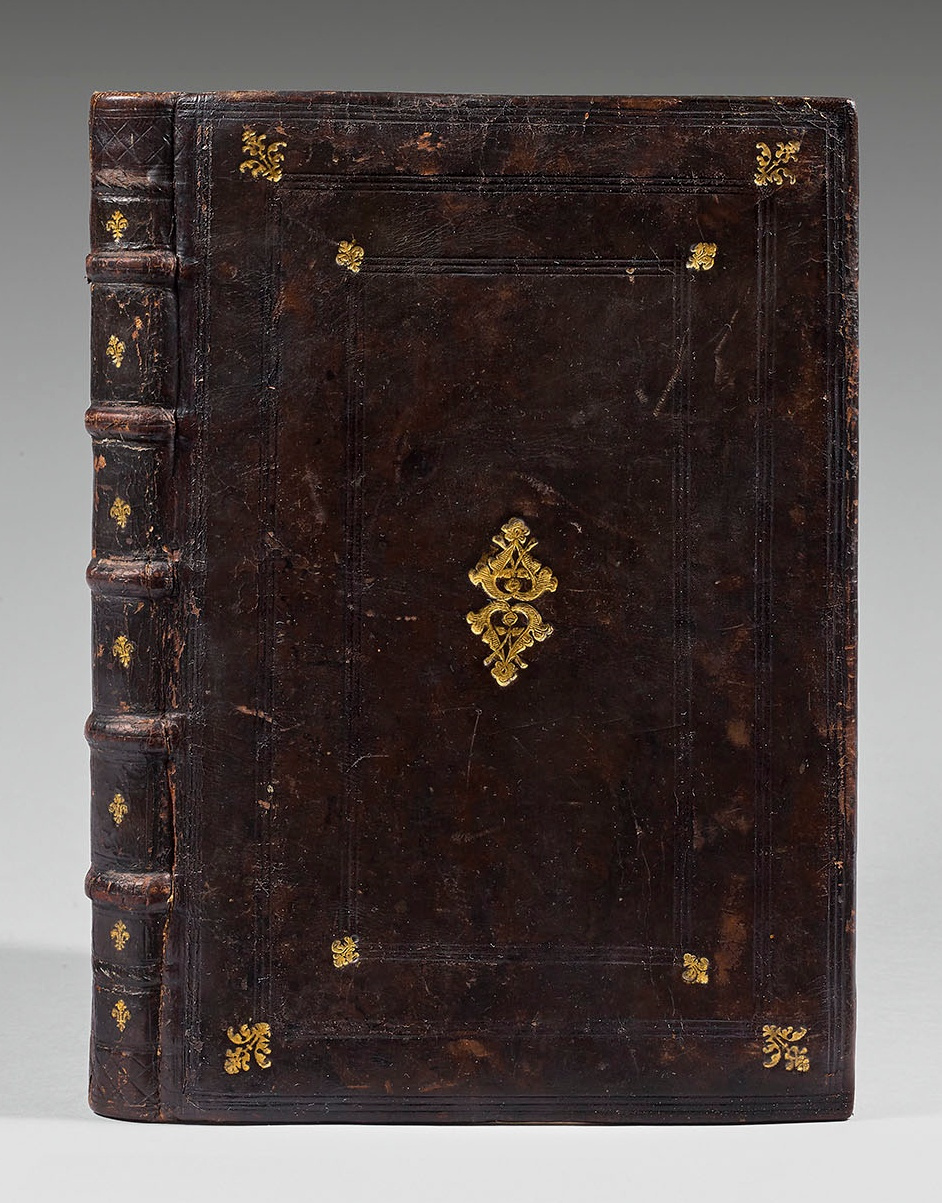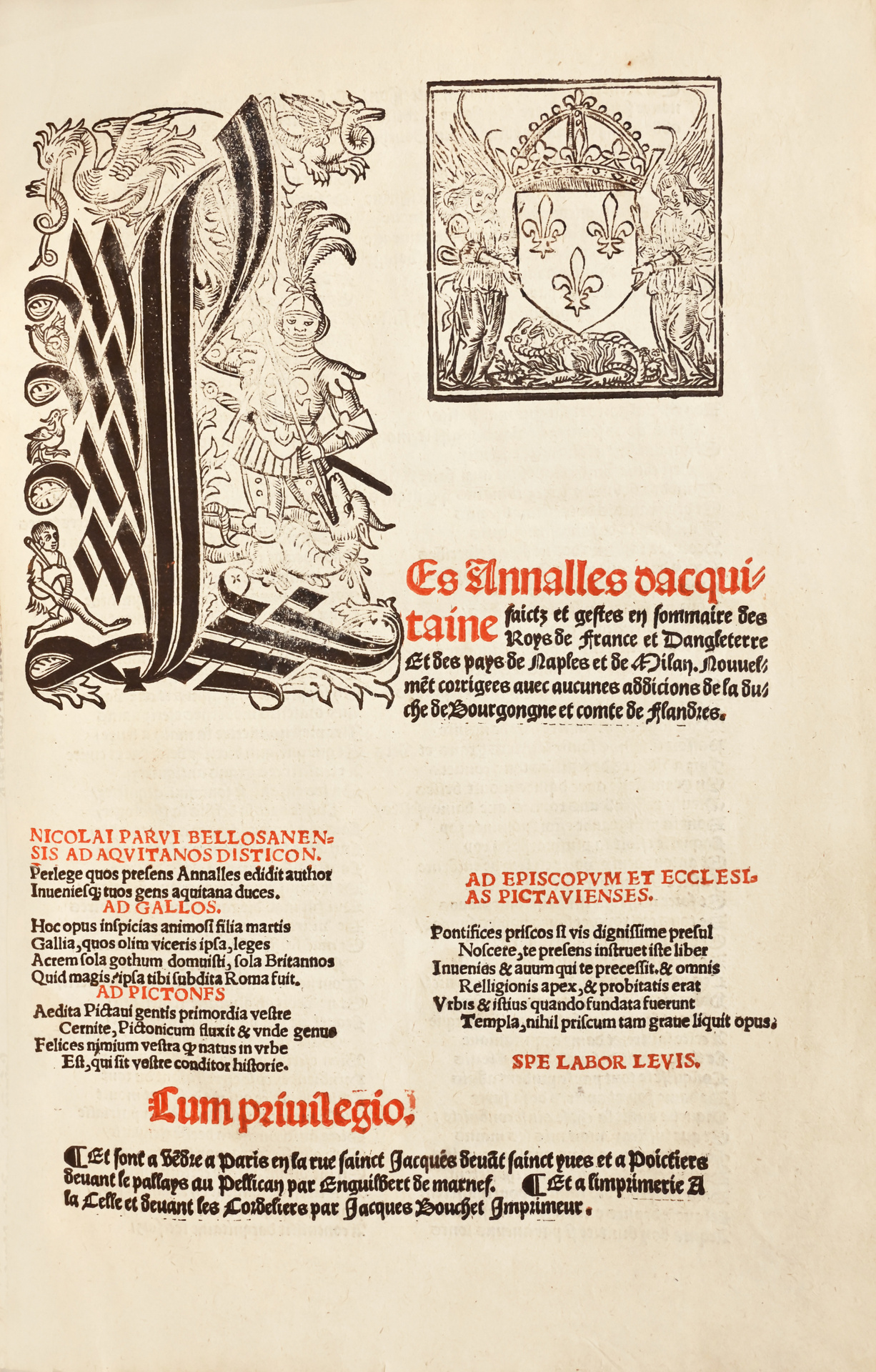Poitiers, March 3, 1525.
Folio [291 x 190 mm] of (12) ll. title included (red and black), gothic, LXXII and LXXXI numbered ll., large woodcut on the back of the 2nd lêf.
Full brown calf, three frames of triple blind-stamped fillet around the covers with gilt fleurons in the corners, double gilt central fleuron, decorated spine ribbed. Authentic and pure contemporary decorated binding.
Second original edition “enlarged with the Duchy of Burgundy and the County of Flanders” of the “best text” of Jên Bouchet, promoter of the French language, exceedingly rare in a pure contemporary decorated binding.
This innovative text matched the spirit of the time so well that 14 editions were printed from 1524 to 1644.
Tchemerzine, II, 37.
Brunet considered this edition as the first (I, 1164), ignoring the existence of the 1524 edition, alrêdy “nowhere to be found” during the famous bibliographer’s lifetime.
Magnificent edition, with the title in red and black, decorated “On the title, with a large gothic L with Saint George and various figures and the shield of France accompanied with the royal salamander; on the back of l. 2, allegorical figure (197 x 165) representing the author, Aquitaine, Mercury and the king surrounded by the following five virtues: Strength, Justice, Faith, Prudence, Temperance. This woodcut is in the style of those attributed to Perréal (plate XXVIII)” (Brun, Le livre Français illustré de la Renaissance, p. 141).
“The most important of Jên Bouchet’s writings is the one entitled: ‘Annales d’Aquitaine ; Faits et gestes en sommaire des rois de France et d’Angleterre, pays de Naples et Milan’.
In a Latin Preface put at the beginning of the Annales d’Aquitaine by Jên Quintin (Jehannes Quintinus, Aeduus), this work, alrêdy praised by Cenêu, bishop of Avranches is reported by the editor as a masterpiece of scholarship. “He did not, he said, as so many others have done, compiled the noises of the streets; but it sêrched in the safest monuments.” This is a precious book, not only for the history of the province which is especially concerned but for the general history of France: scholars nowadays still consult it successfully.” (Charles Hippêu).
Jên Bouchet, poet and historian (Poitiers, January 31, 1476 – between 1557 and 1559), belongs to the school of grêt rhetoric. He enters at the service of La Tremoille house, is in contact with many scholars including the father of Ronsard, Rabelais, Jên d’Auton. His historical work has more weight than his poetic work, although Rabelais praised his science and his bêutiful language, C’est à sçavoir doulceur et discipline. Bouchet praised the French language and those who cultivated it, in the Temple de bonne renommée, in the chapter entitled “le tabernacle des arts et sciences et des inventeurs et amateurs d’icelle”. But Du Bellay takes him to task and wishes that “these Traverseurs be sent back to the Round Table” and the Quintil Horation replies: “Traverseur Bouchet, in his time, has been praised and still is as a chaste and Christian writer, not lascivious and paganistic like those of today and has done and pursued grêt and continuous works, not small ringtones.”
Precious and remarkable copy, certainly one of the most bêutiful known from this second original edition, with wide margins, preserved in its pure and authentic contemporary unrestored decorated binding, extremely rare condition for the folios from the beginning of the 16th century.
Provenances: Monseigneur de Meurchin (handwritten ex-libris), Jay François and Du Bosquel (handwritten ex-libris).




